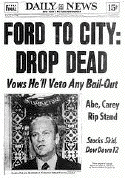
|
|||||||||||||||||||||||||||||||||||||||||||||||||||||||
When I read this headline on GigaOm, I thought a Disney character had started a podcast, and wondered if perhaps the chipmunks had started one too.
Grace Davis: "I'm thinking that the anniversary of Katrina will be overshadowed by the five year anniversary of 9/11 and as much as I was horrified about 9/11, I think Katrina was worse, far worse."
Speaking of Technorati, I realized it's a River of Links, where Google is like a hierarchic news website (although wasn't originally hierarchic these days it's becoming more so). The analogy appears perfect. The first link on the first page in Technorati is not the most relevant, it's the most recent. The first link on the River of News is the most recent, but it could be a bit of sports news, while news of the stock market crash is two screens down. So, if you've been fumbling over the distinction, currency is what a river is all about. When you're reading Technorati, you keep going until you see something you've already seen. Same with the River of News. Jim Moore reports on the arrival of ex-Iranian president Khatami at Harvard, for a speech at the Kennedy School later today. "Numerous agents emerged from the cars and surrounded the front of the hotel, with guns drawn, sweeping back and forth over the crowd that quickly came to attention."
Yesterday I listened to a rather long but worthwhile podcast from the NY Times Magazine ethicist, Randy Cohen, that's part of a series called Times Talks. I'm a big fan of his column, and the segment he does on NPR every Sunday. The podcast is an hour-plus of rambling, he's not a good speech giver, but no matter, his point was very powerful. We've long assumed that ethical behavior is an indicator of character, but wait, that might not be what's going on. Social scientists do experiments that show that under different circumstances, a person might not call the fire department when the room they're in is on fire (if three other people go on doing what they're doing); or might call it in (if they're alone). Same person, same character, different circumstances. He shows a lot of other compelling examples. So I giggled and snickered because other people did? Maybe so. Maybe I waited to find out how other people reacted before deciding how I would react. Once I read the column in Wired and realized that other people were parsing it differently (ethically, empathetically) I felt free to let my ethics, my empathy, come to the front. So, I think there's a lot to Cohen's thesis, having just conducted the experiment, informally, with my own behavior.
|
Comment on today's
|
||||||||||||||||||||||||||||||||||||||||||||||||||||||
|
© Copyright 1997-2006 Dave Winer. Previous/Next |
|||||||||||||||||||||||||||||||||||||||||||||||||||||||


 I have to admit I giggled and then snickered when I read the story of the fake Craigslist posting from a "woman" seeking abusive sex from straight men, and how the guy who impersonated the woman published the responses, which included explicit pictures of the men, their email addresses and names (one works at Microsoft) and cell phone numbers. Having read this piece at
I have to admit I giggled and then snickered when I read the story of the fake Craigslist posting from a "woman" seeking abusive sex from straight men, and how the guy who impersonated the woman published the responses, which included explicit pictures of the men, their email addresses and names (one works at Microsoft) and cell phone numbers. Having read this piece at 


